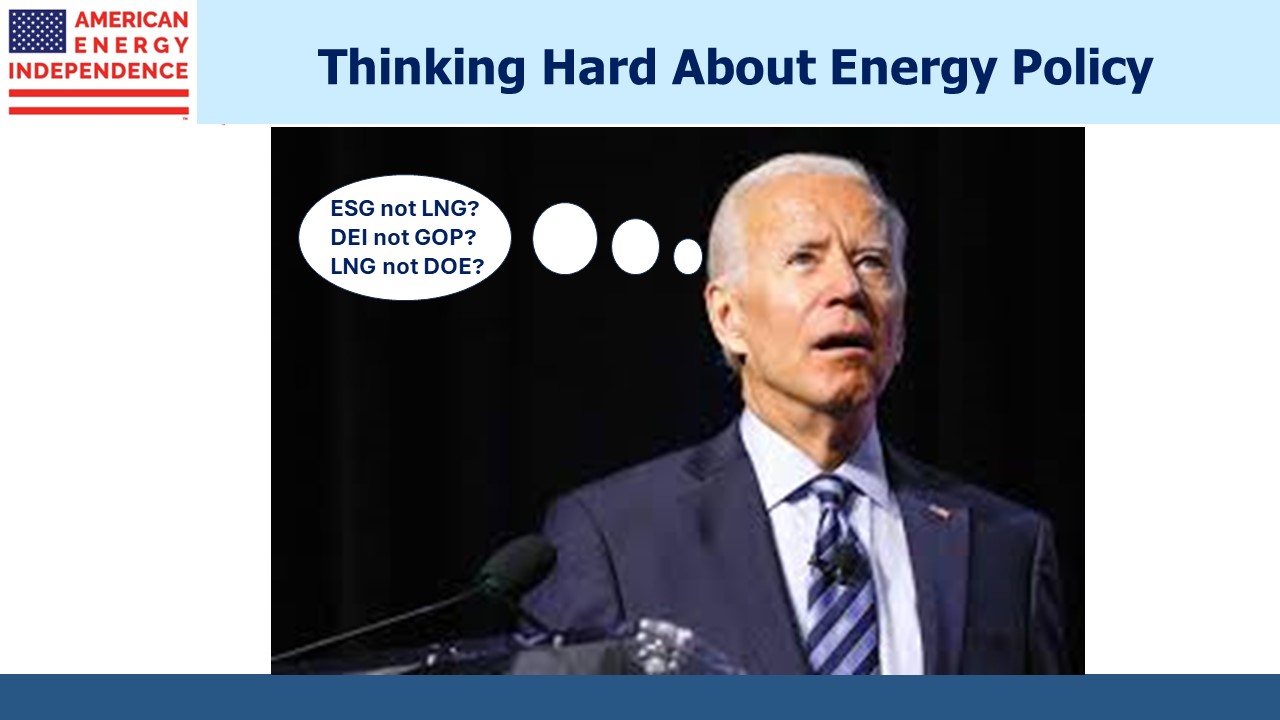Election Year Meddling Saps US Energy
By Henry Hoffman, Partner, SL Advisors
In the realm of global energy, 2024 was heralded as a landmark year for the expansion of liquefied natural gas (LNG) projects, particularly for America. Optimism was buoyed by the prior year’s achievements, wherein American enterprises reached Final Investment Decision (FID) on the equivalent of 5 Billion Cubic Feet per Day (BCF/D). That’s one third of the amount of gas Europe was importing from Russia before the invasion of Ukraine!
However, a regulatory interlude, specifically the temporary suspension of non-Free Trade Agreement (FTA) export licenses coupled with more stringent criteria for extending project in-service dates, has precipitated a recalibration of expectations. This pause has advantaged international competitors, notably with Qatar announcing a 16-MMt/y expansion. Consequently, the landscape for 2024’s FIDs is now markedly altered, favoring projects beyond American shores.
According to the leading LNG experts at Poten & Partners, only a few domestic endeavors are still poised for progress. These include NextDecade’s (Symbol: NEXT) Rio Grande LNG Train 4, a notable candidate for a 2024 FID. Poten notes they have their DOE approvals in hand and Middle East buyers (Reuters has previously reported this is ADNOC) are in advanced discussions for offtake of 2-3 Million Tonnes per Annum (MTPA), enough to commercialize the project with TotalEnergies exercising its option for 1.5MTPA. NextDecade is targeting FID on T4 by the end of 3Q 2024.
Nonetheless, the overarching sentiment within the industry is one of restraint, as projects that once seemed imminent now grapple with uncertain timelines. This unforeseen stasis extends beyond the U.S., affecting Mexican projects reliant on American natural gas, thereby creating a ripple effect that benefits international ventures in the UAE, Mozambique, and Papua New Guinea.
In the intricate tapestry of global energy dynamics, the recent recalibration of the United States’ regulatory stance on non-FTA LNG export licenses has precipitated a notable shift. Asian buyers, initially on the cusp of cementing long-term procurement deals with U.S. LNG developers in the first quarter of 2024, find themselves at a crossroads, compelled to reconsider their supply strategies in light of these regulatory adjustments.
This pivot is not merely a transient phase but a reflection of a deeper reevaluation of supply chains amidst evolving policy landscapes. Poten highlights that Energy Transfer’s (Symbol: ET) Lake Charles LNG project epitomizes the challenges and resilience within this sector. The project has faced renegotiation barriers with potential buyers due to the uncertainty surrounding its non-FTA permit extension, essential for meeting its proposed in-service deadline of December 2025.
This situation is further exacerbated by the U.S. Department of Energy’s stringent criteria for permit extensions, adding layers of complexity to an already intricate negotiation landscape. As a result, Energy Transfer’s attempts to amend pricing structures with buyers have encountered significant headwinds, underscoring the delicate balance between regulatory compliance and market competitiveness.
Poten notes that Japan’s Kyushu Electric has delayed converting its Heads Of Agreement (HOA) with Energy Transfer into a binding Sales and Purchase Agreement (SPA) as one example of the effects of this disastrous policy. Conversely, Tellurian’s (Symbol: TELL) plagued Driftwood project may have received a lifeline, enabling it to capitalize on the current regulatory pause that has beleaguered competitors like Energy Transfer.
The implications of this regulatory hiatus extend beyond mere project delays. It underscores a burgeoning competition for market share in the LNG sector, with other nations benefiting from America’s masochist behavior. This political maneuver disadvantages our allies in Europe and Japan while aiding rivals in the Middle East and Russia, manifesting significant and concrete impacts.
Fortunately, in contrast to the partisan DOE, the American spirit lives on in domestic LNG developers, who, despite the current impasse, continue to forge ahead with negotiations and project planning.
